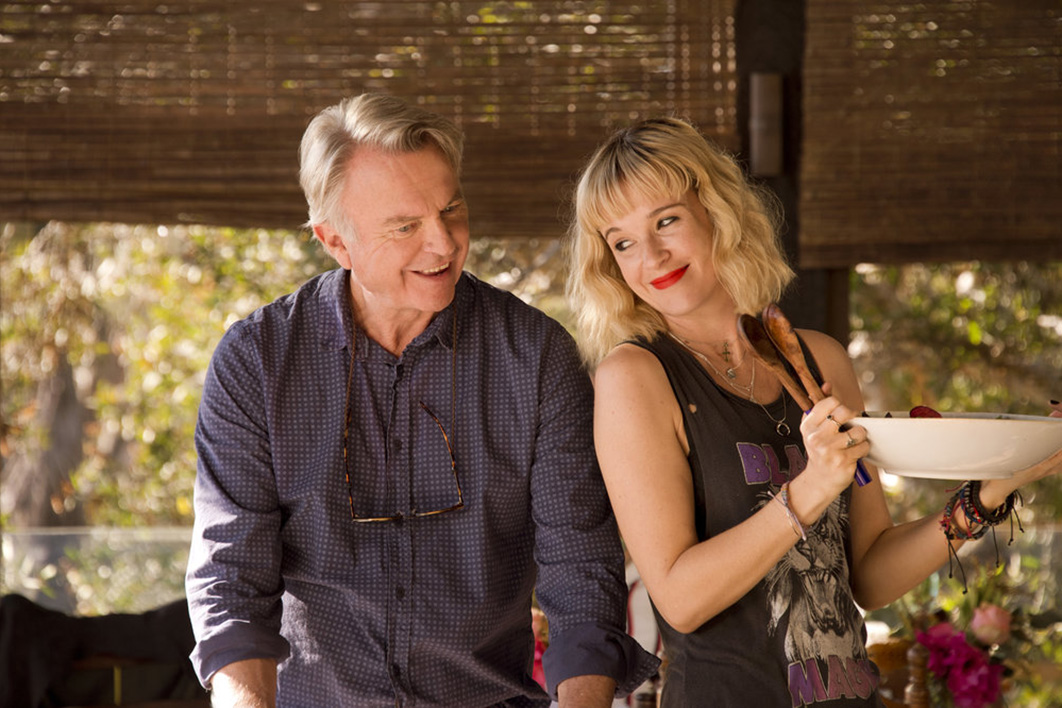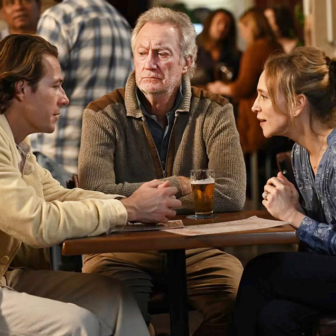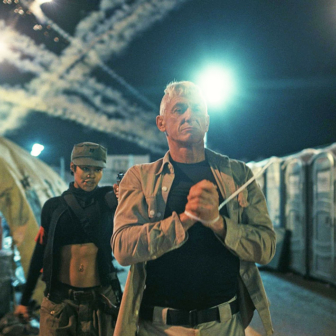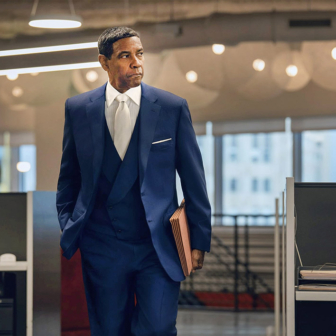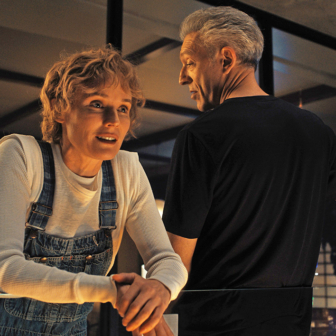There is nothing like a reunion of family and friends (in film and perhaps even in real life) to disperse sweetness and light as storm clouds gather. Think of Don’s Party (1976) or August: Osage County (2013), or dozens before, between and after them. Rachel Ward’s new film, Palm Beach, feels like two kinds of get-togethers: its plot brings old friends and family to the eponymous Sydney beauty spot, while its cast reads like a rollcall of the earlier days of the Australian cinema revival.
Were there many more resonant names in the late 1970s and early 80s than Bryan Brown and Sam Neill, both of whom went on to international careers? Think of Brown in the prison drama Stir (1980) or Neill nearly talking Judy Davis into marriage in My Brilliant Career (1979). And it’s surely no coincidence that Brown was in a modest 1980 feature also called Palm Beach. The two actors have appeared together in a number of films, most recently in the notable Australian western Sweet Country (2017), and on television in Old School (2014). The other male star of this new Palm Beach is the African-born British actor Richard E. Grant, most recently at his charismatic best in Can You Ever Forgive Me?
I’ve concentrated on the chaps first because they are responsible for the serious tensions that underpin the film’s reunion narrative. But the women create equally vivid impressions. Among these, Heather Mitchell (Proof, 1991), Jacqueline McKenzie (Romper Stomper, 1992), and Greta Scacchi (Country Life, 1994) all made their presences felt in films — Australian or not — in the 1980s and 90s, and well into the new century. In Palm Beach, they play the partners of, respectively, Grant, Neill and Brown.
Get this lot together, along with some of their offspring, and the scene is set for one hundred minutes of mostly enjoyable displays of affection, resentment, guilt and friction of many kinds. Ward and Joanna Murray-Smith’s screenplay weaves these lives together with real acuity — and Ward as director knows she’s got a stellar cast on her hands and she’s going to ensure they all have their share of the limelight.
The occasion for the reunion is Frank’s seventieth birthday. The celebration, set in his plushy Palm Beach pad, brings together the members of Swagger, a band he once managed featuring Neill’s Leo and Grant’s Billy, along with their partners and children of various parentage. Frank has done well financially but is at a loose end after the sale of his Swagger Gear sportswear company; Leo has been modestly successful as a journalist in New Zealand; Billy has been broke and has caused resentment by allowing the sale of their once-hit song, “Fearless,” to a firm called Pottie Pride.
The sources of potential conflict start to emerge with Frank and Leo’s reaction to the nappy ads. But these two will have to deal with a more crucial conflict arising from the question of the paternity of Frank’s son Dan (Charlie Vickers). Charlotte (Scacchi) urges Leo to maintain the secrecy of decades, but Leo has had a dangerous medical issue and wants the matter sorted. This conflict is sharply enacted, but it is perhaps somewhat too patly resolved in a scene that recalled for me that moment in Gone with the Wind when it transpires that Rhett Butler has been hiding on a sofa while Scarlett and Ashley are having a significant exchange.
Billy’s actor wife Eva (a very vivid Mitchell) is now sixty but troubled about whether her career will be over if she takes on a role as a grandmother. The film finds a smart way out of this conflict, and out of the ensuing near-death of her marriage to Billy. And Holly (Claire van der Boom), Frank’s daughter by another relationship, fears hers with her farmer boyfriend Doug (Aaron Jeffery), who prefers beer to Veuve Clicquot, won’t survive when she tells him, “I can’t have kids.”
Oh, there’s a lot going on in — and at — Palm Beach, but Ward manages to avoid a feeling of overcrowding. Her direction ensures that distinctions are always made clear, that some expectations are met and others not. Along the way, and crucially abetted by Bonnie Elliott’s luminous and evocative cinematography, images persistently mean. Most obviously important is the contrast between the serene waters of the Palm Beach setting and the relatively cramped interiors that are usually the scenes of conflict.
Individual moments, such as when the whole cast sits around the lavishly set dinner table, seem to announce a spirit of harmonious warmth that we already suspect, on the basis of small touches of evidence, won’t last. Charlotte climbs into a hammock with Leo, with whom she had an affair twenty years back, but promptly climbs out when it is clear they are at odds about the secret they have once promised to keep. And there are witty verbal sallies, such as when English-based Billy complains of being bitten by mosquitoes as they all sit outside: “Why do mozzies only love me?” “Someone has to,” is Frank’s kindly reply. Or when Dan, showing minimal zeal for higher education, claims he’s “working on a skating app.”
The film is full of sharp little touches like this, and continues to gather steam as it makes its way to what I suppose is the metaphoric equivalent of a group hug: in this case, a long shot of family and friends dancing happily by the pool. As a curmudgeon who greatly dislikes a feel-good ending, I must admit that the film convinces me that it has earnt this final image, through the astuteness of the writing and direction. The spectacle of so attractive a cast persuades me that these people may have conflicts ahead, but for the moment, and in the interests of friendship, they are prepared to hang together on this celebratory occasion. Not so different, maybe, from the way friendships work in real life too? •
